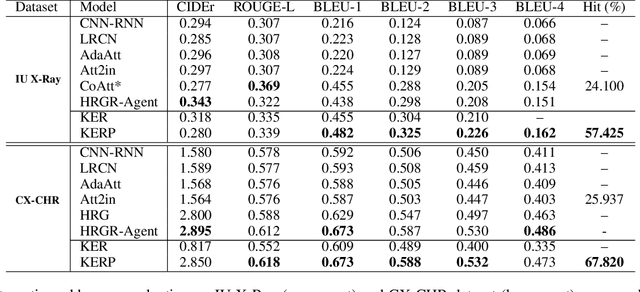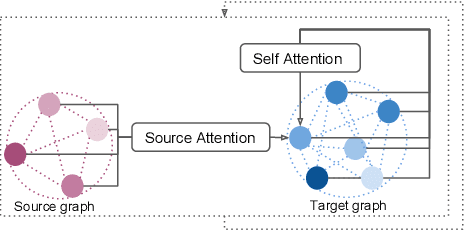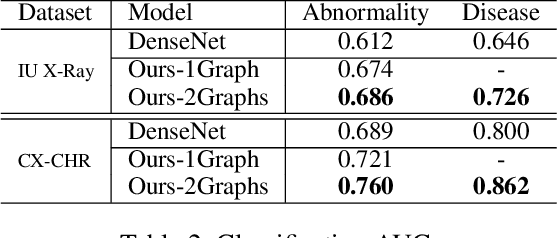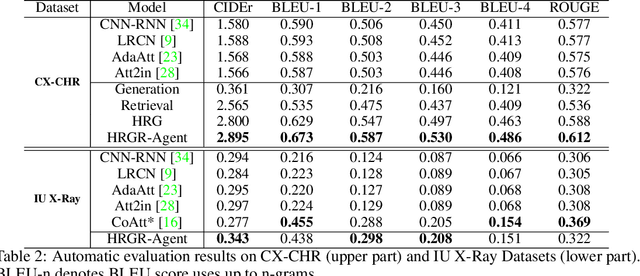Christy Y. Li
Knowledge-driven Encode, Retrieve, Paraphrase for Medical Image Report Generation
Mar 25, 2019



Abstract:Generating long and semantic-coherent reports to describe medical images poses great challenges towards bridging visual and linguistic modalities, incorporating medical domain knowledge, and generating realistic and accurate descriptions. We propose a novel Knowledge-driven Encode, Retrieve, Paraphrase (KERP) approach which reconciles traditional knowledge- and retrieval-based methods with modern learning-based methods for accurate and robust medical report generation. Specifically, KERP decomposes medical report generation into explicit medical abnormality graph learning and subsequent natural language modeling. KERP first employs an Encode module that transforms visual features into a structured abnormality graph by incorporating prior medical knowledge; then a Retrieve module that retrieves text templates based on the detected abnormalities; and lastly, a Paraphrase module that rewrites the templates according to specific cases. The core of KERP is a proposed generic implementation unit---Graph Transformer (GTR) that dynamically transforms high-level semantics between graph-structured data of multiple domains such as knowledge graphs, images and sequences. Experiments show that the proposed approach generates structured and robust reports supported with accurate abnormality description and explainable attentive regions, achieving the state-of-the-art results on two medical report benchmarks, with the best medical abnormality and disease classification accuracy and improved human evaluation performance.
Hybrid Retrieval-Generation Reinforced Agent for Medical Image Report Generation
May 21, 2018



Abstract:Generating long and coherent reports to describe medical images poses challenges to bridging visual patterns with informative human linguistic descriptions. We propose a novel Hybrid Retrieval-Generation Reinforced Agent (HRGR-Agent) which reconciles traditional retrieval-based approaches populated with human prior knowledge, with modern learning-based approaches to achieve structured, robust, and diverse report generation. HRGR-Agent employs a hierarchical decision-making procedure. For each sentence, a high-level retrieval policy module chooses to either retrieve a template sentence from an off-the-shelf template database, or invoke a low-level generation module to generate a new sentence. HRGR-Agent is updated via reinforcement learning, guided by sentence-level and word-level rewards. Experiments show that our approach achieves the state-of-the-art results on two medical report datasets, generating well-balanced structured sentences with robust coverage of heterogeneous medical report contents. In addition, our model achieves the highest detection accuracy of medical terminologies, and improved human evaluation performance.
 Add to Chrome
Add to Chrome Add to Firefox
Add to Firefox Add to Edge
Add to Edge